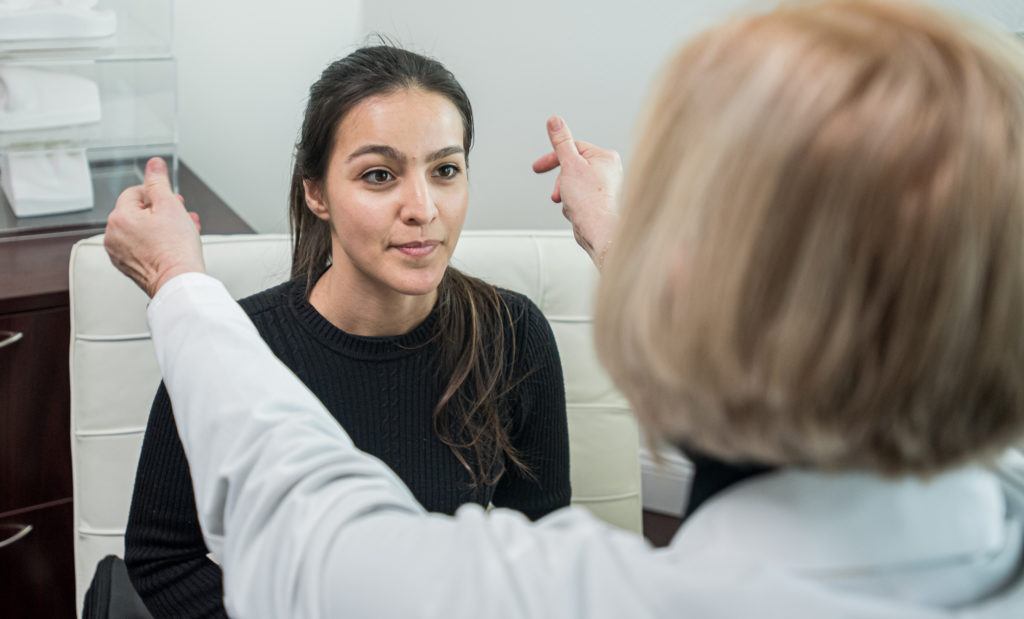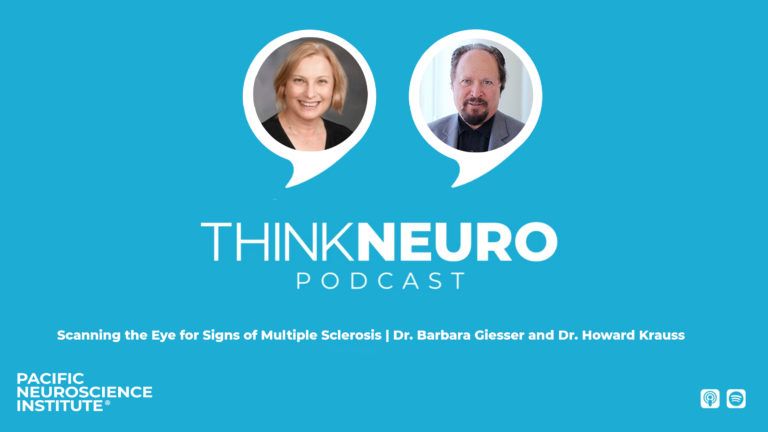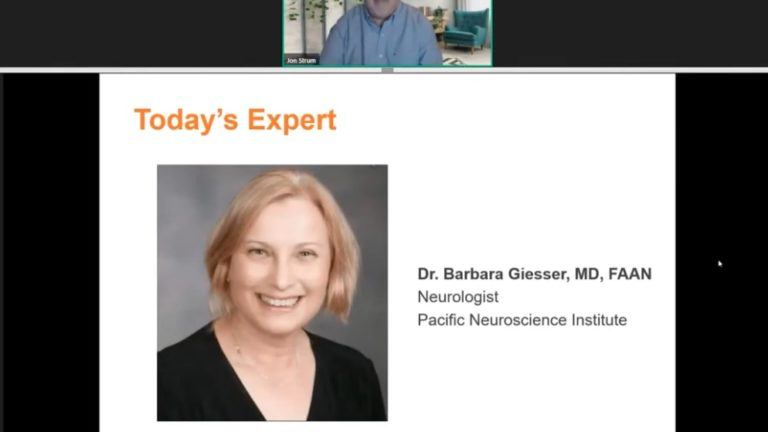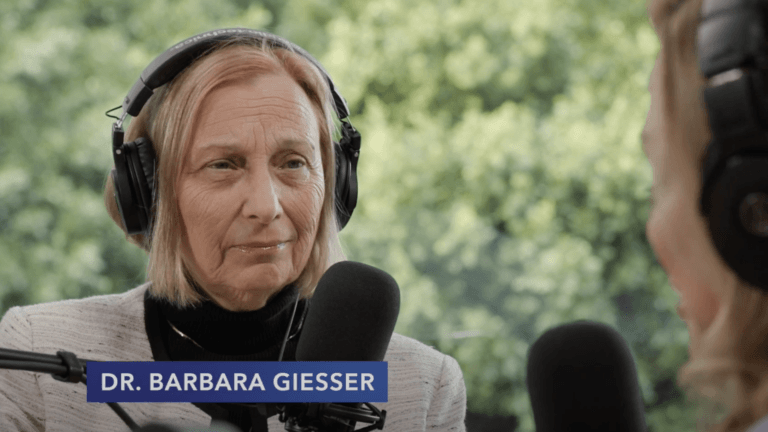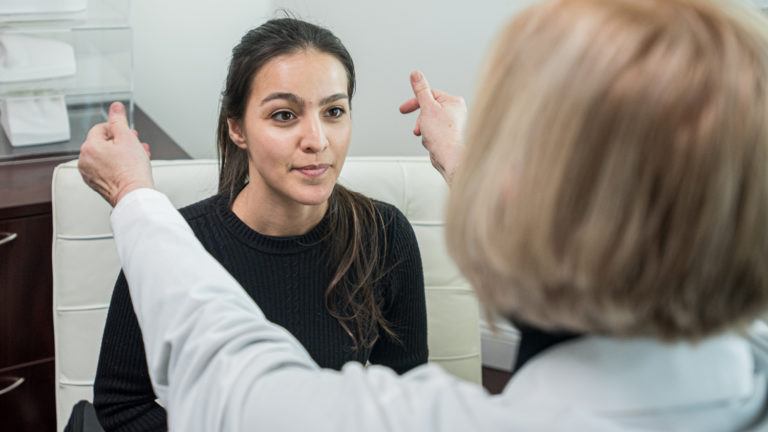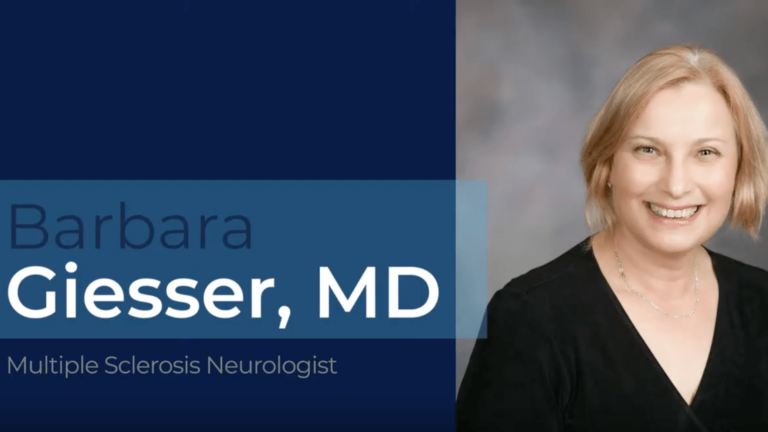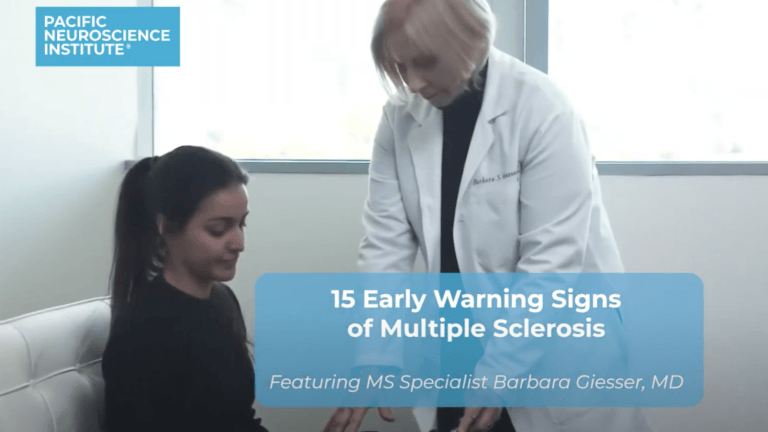
Multiple Sclerosis
Our Approach to Treating Multiple Sclerosis
On this page: About MS | Causes and Risk Factors | Symptoms | Treatment | MS Specialist | Videos
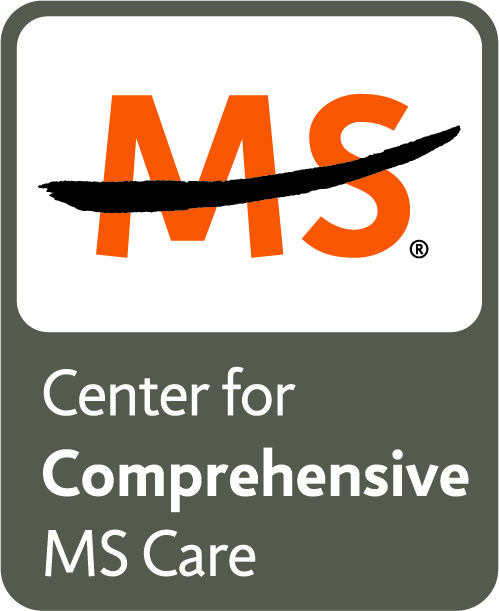
At Pacific Neuroscience Institute, care of people with Multiple Sclerosis combines state-of-the-art diagnostics and treatments with evidence-based recommendations for lifestyle practices. The MS program at Pacific Neuroscience Institute is recognized as a “Center of Comprehensive MS Care” by the National MS Society.
Our comprehensive strategy treats the whole person, with the goals of controlling disease activity while optimizing function and quality of life. Director, Barbara S. Giesser, MD, and MS nurse specialist Keith-Robert Quinn, RN, provide compassionate, effective care for all their patients. The person with MS is an important partner in all treatment decisions.
Conditions We Treat
- Multiple Sclerosis
- Clinically Isolated syndrome
- Neuromyelitis Optica
- Transverse myelitis
What Is Multiple Sclerosis?
Multiple sclerosis (MS) is a chronic autoimmune neurological disorder that affects the central nervous system, specifically the brain and spinal cord. In multiple sclerosis, the body’s immune system mistakenly attacks the protective covering of nerve fibers, called myelin, in the central nervous system. This immune-mediated damage disrupts the normal flow of electrical impulses along the nerves, leading to a wide range of neurological symptoms.
Multiple Sclerosis is generally believed to be an autoimmune disease. Normally, the immune system, which is composed of different types of immune cells and proteins, recognizes an individual’s body as “Self’ and protects it from outside or “non-self” entities, such as germs.
The central nervous system or CNS ( brain, optic nerve, and spinal cord) usually does not allow most immune cells and proteins to enter. In MS, the immune system no longer recognizes parts of the central nervous system as “Self’ and gains the ability to get into the CNS and to attack the nerves.
What Causes Multiple Sclerosis?
The exact cause of multiple sclerosis is not fully understood, but it is believed to involve a combination of genetic and environmental factors. Certain genes are thought to predispose individuals to develop the condition, and various environmental triggers, such as viral infections or low levels of vitamin D, may contribute to its onset.
The trigger that causes the immune system to attack the CNS is currently unknown. It is thought that MS develops in an individual as a combination of genetic susceptibility and environmental influences. These precise genes and environmental factors have yet to be conclusively identified.
MS Risk Factors:
- Adolescent obesity,
- Smoking
- Low Vitamin D levels in early life
- Having a close family member with MS
Who Gets MS?
MS is the second most common cause of neurologic disability in young persons and usually presents between ages 20-50. It affects women almost 3 times as often as men and is more common in Caucasians.
Symptoms of Multiple Sclerosis
What Causes Symptoms of MS
Nerves are very similar to electrical cables and communicate by transmitting electrical & chemical signals. Many of them are coated with an insulating material, myelin, which helps the electrical signal be conducted in a swift and efficient manner.
In MS, the myelin insulation is damaged or destroyed, and scar tissue or “sclerosis” occurs, leading to slowed or blocked transmission of electrical information.
In addition to myelin damage, the nerve wire or “Axon” is damaged as well. These areas of nerve damage can be seen on MRI and are referred to as “plaques”.
What Are The Symptoms Of MS?
Because MS attacks multiple parts of the CNS, it can produce many different symptoms. The hallmark characteristic of multiple sclerosis is the presence of multiple areas of inflammation and scarring (sclerosis) in the central nervous system. These areas, known as lesions or plaques, can be detected through magnetic resonance imaging (MRI) scans.
Common MS symptoms include:
The symptoms of multiple sclerosis vary widely and can affect different parts of the body. Common symptoms include:
- Fatigue
- Numbness or tingling
- Weakness
- Incoordination
- Visual disturbances
- Muscle spasms
- Change in bladder, bowel or sexual dysfunction
- Problems with mood and memory and thinking
How is MS Treated?
There are two categories of treatment for persons with MS.
Disease Modifying Therapies (DMT)
DMT are medications that interfere with the immune system’s ability to attack the nerves.
They help prevent future areas of nerve damage, and slow disease progression. They do not reverse existing scars or treat symptoms.
Symptoms Management
Most symptoms of MS can be greatly relieved or ameliorated.
This usually involves a combination of appropriate medications and other treatment modalities such as rehabilitative therapies, equipment, lifestyle practices including exercise and alternative and complementary therapies where appropriate. Pacific Neuroscience Institute also offers speech pathology services for patients with multiple sclerosis.
For people with MS, exercise and physical activity can be variously challenging. However, being physically active is one of the most beneficial adaptations to a lifestyle with MS.
About Dr. Barbara Giesser

Barbara S. Giesser, MD, FAAN, FANA, is an internationally recognized clinician and award-winning educator who has specialized in the care of persons with Multiple Sclerosis since 1982. At the Brain Health Center at Pacific Neuroscience Institute in Santa Monica, CA, her approach to the diagnosis and management of people with MS combines state of the art diagnostics and a personalized medication plan for each patient with an emphasis on integrating lifestyle and wellness strategies into the neurologic treatment plan.
MS Clinic Location
2125 Arizona Ave, Santa Monica, CA 90404
310-582-7613
Useful MS Links
- MS Fact Sheet
- PNI Blog Articles About Multiple Sclerosis
- “A Measured Journey” from the Brain&Life Special MS Issue, editor Dr. Barbara Giesser.
Additional MS Resources
Videos about Multiple Sclerosis
Articles about Multiple Sclerosis (MS)
